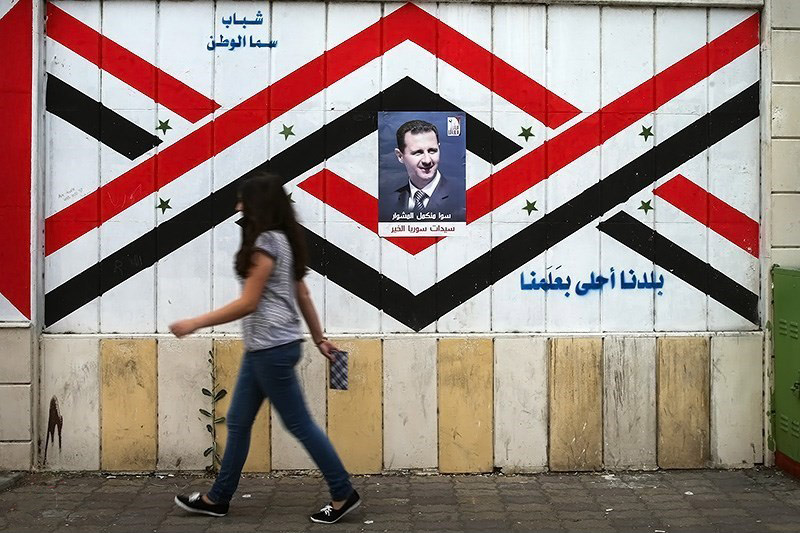 Photo Credit: Hosein Zohrevand / Flickr, https://creativecommons.org/licenses/by
Photo Credit: Hosein Zohrevand / Flickr, https://creativecommons.org/licenses/by
Caesar Act Sanctions: Increasing Pressure on Al-Assad’s Regime
The U.S. recently implemented the first round of the Caesar Act sanctions in Syria, with more expected throughout the summer in a “sustained campaign of economic and political pressure.” The sanctions seek to hold President al-Assad and other elites accountable for violence against Syrian civilians. Whether the sanctions will achieve the U.S.’ intended objective, or simply create punishing conditions for Syrian civilians, is yet to be seen.
Civil War and Economic Crisis
In March 2011, Syria experienced an outburst of pro-democracy demonstrations inspired by similar occurrences in the region during the Arab Spring. Now, nine years later, the civil war that stemmed from the 2011 protests appears to be nearing its close. Al-Assad has managed to maintain power throughout that time by utilizing brutal tactics and relying on support from Russia and Iran.
While the violence has begun to recede, the country’s economic crisis has spiraled. This has occurred partly in expectation of new sanctions but is largely influenced by the financial crisis in neighboring Lebanon. Syria’s currency has plummeted, and this collapse has caused the price of food and necessities to soar—conditions that played a role in sparking the protests prior to the war. Additionally, in the Suweida province in southwest Syria has seen new protests decrying the country’s economic situation and al-Assad’s leadership.
Caesar Syrian Civilian Protection Act
Amid this crisis, the U.S. has imposed a new round of sanctions, the result of the Caesar Syrian Civilian Protection Act. It is named for a Syrian photographer who shared 50,000 photos documenting executions and torture in al-Assad’s prisons. These photos exposed the reality of human rights violations in Syria and caused bipartisan interest in the issue, which led to the Caesar Act. The stated objective is to:
“Promote accountability for the Assad regime’s violence and destruction that has killed hundreds of thousands of civilians; subjected thousands of Syrians to arbitrary detention, the majority of whom remain missing, and many of whom are exposed to torture and sexual violence; and devastated the country’s civilian infrastructure, including homes, hospitals, and marketplaces, resulting in the displacement of over half the population.”
The June 17th sanctions seek to achieve this end by targeting 39 individuals and organizations that have been instrumental in funding the regime or have profited from the war. This set of sanctions differs from those previously implemented because secondary sanctions will be applied to any entity that engages in business with the sanctioned individuals or organizations in Syria. This is designed to make it more difficult for Syria’s allies to assist the country. Additionally, the Caesar Act sends a message to those seeking to invest in Syria or other countries seeking to normalize their relationship with the regime, effectively cutting off al-Assad’s access to foreign investment or aid.
The U.S. has given al-Assad six stipulations that must be met for the Caesar Act sanctions to be lifted. While it’s unlikely that the regime will seek to meet the criteria, it is possible that the worsening economic situation could eventually push al-Assad to the negotiating table.
Russia and Iran
The sanctions will cause al-Assad’s regime to experience increased difficulty in obtaining foreign investments that are vital for the country’s reconstruction. Much will depend on how Syria’s allies react to the sanctions, which greatly increase the cost of being present in the country. Iran has already assured al-Assad that it will provide Syria with economic support, although the value of its assistance is questionable due to Iran’s own financial difficulties.
Russia has offered no assurances of its future intentions as of yet. Further Russian support in the face of the U.S. sanctions may be tied to Syrian concessions, such as increased military installations, which Putin sought to negotiate for only last month. If both allies do decide to continue supporting al-Assad, the lack of investment from other entities due to the sanctions could drive the country further into Iran and Russia’s sphere of influence.
Looking Forward
Because most Syrians are already struggling financially, with 83% living below the poverty line, civilians will likely bear the brunt of the first set of sanctions as economic conditions worsen. While a variety of factors influence the success of sanctions, a sufficiently narrow scope is one of the most important. Broad sanctions increase the probability that civilians are affected more than the intended targets. Particularly, the sanctions on construction companies is likely to have a negative impact on the housing and infrastructure needs of innocent civilians. In the next set of sanctions, it is necessary that the U.S. strive for more precision. Doing so will allow the U.S. to continue working towards its objectives in the region without adding to the already horrific conditions Syrians civilians endure.





